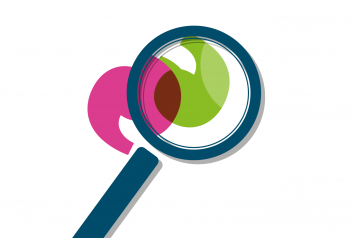Personal Health Budgets: Frequently Asked Questions

1. What is a personal health budget?
A personal health budget uses NHS funding to create an individually agreed personalised care and support plan that offers people of all ages greater choice and flexibility over how their assessed health and wellbeing needs are met.
The personalised care and support planning conversation identifies the care, support and services the personal health budget will be spent on. This can include a range of things to give people access to care, support and services that are holistic, innovative and build on their strengths.
Key points:
- personal health budgets enable people to have choice and control over decisions about their care and the budget that is available to meet their needs
- personal health budgets can be managed in different ways. No one will ever be expected to have more choice and control than they feel comfortable with
- the NHS should work in partnership with the individual and agree together the outcomes to be achieved and set these out in a personalised care and support plan
- all personal health budgets must be agreed and signed off by the person’s NHS team, and where necessary the local integrated care board (ICB).
2. What is the aim of a personal health budget?
The aim of a personal health budget is to give people more choice and control over the money spent on meeting their health and wellbeing needs, in order to help meet their needs in a way that is most appropriate for them. They are one way of helping people to be more involved in discussions and decisions about their care, and they can be suitable for people of all ages, with physical or mental health conditions, or both.
3. How can someone get a personal health budget?
If someone is interested in a personal health budget for themselves or someone they care for, they should talk to their local NHS team or health professional who helps them most often with their care – this might be a case manager or a GP. Certain groups of people have a legal right to a personal health budget, outlined in the Right to have guidance. All areas across England are expected to offer personal health budgets to additional groups of people, based on local need, including people with a learning disability and/or autism.
Decisions about who can have a personal health budget outside of the legal rights are made by integrated care boards (ICBs), who are responsible for paying and planning for most local health services. Every ICB should have information made publicly available about who is able to access a personal health budget locally.
4. Is a Personal Health Budget means tested?
No NHS support is free at source as per the constitution. However this also means you cannot ‘top up’ personal monies to the care and support detailed in your support plan.
5. Can I have a personal assistant and what do they do?
Personal Assistants are support workers who are employed by you to help you with the assessed needs and health outcomes detailed in your agreed Support Plan.
6. Can the personal assistant (PA) be a family member?
Yes often the people who know you, your lifestyle, and needs best are family members. If you choose to employ a family member consideration must be made on their circumstances, impact of any benefits, employment, and other caring responsibilities. Any family member becoming a PA is subject to the due diligence process in relation to employment and reference checks. The Risk Enablement Panel will consider any application for a family member to be a PA and help you with the decision.
7. What is an integrated personal budget?
An integrated personal budget is where the budget includes funding from both the local authority and the NHS for health and social care needs and where appropriate, could also include education funding. Integrated personal budgets aim to put in place a seamless approach to care, so that people and their families have the same experience of care and support, regardless of whether their care is funded by the local authority or the NHS. An integrated personal budget, as with other personal budgets, can be managed in one of three ways (notional budget, direct payment or third party budget), or a combination of these approaches.
8. Does a personal health budget cover all the care that someone receives from the NHS?
No, a personal health budget is only intended to pay for the planned and agreed aspects of someone’s care. For example, a personal health budget may be suitable for someone with a disability who requires ongoing and regular input from the NHS, either in their home or from community services. A personal health budget does not cover things such as A&E, GP appointments, medical tests, seeing a consultant, or medication. These types of care would continue to be accessed in the usual way.
9. How can a personal health budget be managed?
A personal health budget is based upon a personalised care and support plan. This plan sets out someone’s health and wellbeing needs, the outcomes they wish to achieve, the amount of money available and how it will be spent. Once the plan and budget has been agreed, the money in a personal health budget can be managed in three ways, or a combination of these:
- Notional budget: No money changes hands. The personal health budget holder knows how much money is available for their assessed needs and decides together with the NHS team how to spend that money. The NHS is then responsible for holding the money and arranging the agreed care and support.
- Third party budget: An organisation independent of both the person and the NHS commissioner (for example an independent user trust or a voluntary organisation) is responsible for and holds the money on the person’s behalf. They then work in partnership with the person and their family to ensure the care they arrange and pay for with the budget meets the agreed outcomes in the care plan.
- Direct payment: The personal health budget holder or their representative has the money in a bank account and takes responsibility for purchasing the agreed care and support. Budget holders must show what the money has been spent on. Further guidance is included in the Direct Payments for Healthcare guidance.
In most cases people will need a separate bank account to receive a personal health budget via a direct payment. The separate account must only be used for purchasing care, but it may also be used for receiving and managing a social care personal budget, if someone has an integrated personal budget.
If someone wishes to have a personal health budget but doesn’t want to manage it themselves or doesn’t have the capacity to manage the budget themselves, it may be possible for someone else to manage the budget on their behalf. This might be a family member, a close friend, a representative or nominee. Regardless of who is responsible for the budget, every effort must be made to ask the person about their wishes and to keep their best interests in mind.
People’s personalised care and support plans should be regularly reviewed and updated, at least once every 12 months. The frequency of any review should be based on the needs of the individual, for example if someone has a fluctuating or degenerative condition then their plan may need to be reviewed more frequently. People will also need a review if their health needs change or something in the plan isn’t working. No one will ever be expected to have more choice and control than they feel comfortable with.
10. What can a personal health budget be spent on?
A personal health budget can potentially be spent on a broader range of care and support than would routinely be commissioned by the NHS, if it is agreed as being appropriate to meet someone’s identified needs. This could include funding for a personal assistant to help with personal care at home, and equipment such as a wheelchair. There are a small number of exclusions that are outlined in regulations.
Everyone who has a personal health budget should be supported by a suitable professional to think through how they would like to use their budget in order to meet their health and wellbeing needs. It is the responsibility of local NHS teams to advise people or refer someone to a relevant local organisation who can offer the necessary support. This is often described as brokerage.
What a personal health budget will be spent on, as outlined in their personalised care and support plan, must be agreed between the person or their representative, the local NHS team and where necessary the ICB. A personal health budget cannot be used to:
- pay for alcohol, tobacco, gambling or debt repayment, or anything that is illegal
- buy emergency care – for example if someone in receipt of a personal health budget had an accident, they would go to A&E like everyone else
- buy primary care services such as seeing a GP or buying medication. For a full list of exclusions please see the Direct Payments for Healthcare guidance.
11.Can people add their own money into a personal health budget?
In nearly all cases, people cannot add their own money into a personal health budget, and the budget should meet all the identified health and wellbeing needs of the person. The exceptions to this rule includes people accessing wheelchairs , where under existing legislation people can add their own money to NHS funds in order to purchase a different service or product. In these situations the NHS must still ensure the NHS funding covers the service or product that meets someone’s identified needs, as agreed in the care and support plan, so that any contribution is paying for any additional extras or changes that an individual wants outside of the agreed need.
In all other situations, if someone wants to access more services than those being provided by the NHS to meet their assessed needs, then they can do so. They would need to organise and pay for this, and it would be separate to the personal health budget.
12. How much money will someone get in their personal health budget?
The amount that someone receives in their personal health budget will depend on the assessment of their health and wellbeing needs and the cost of meeting these needs.
Once someone’s health and wellbeing needs have been assessed, a personalised care and support plan is developed in partnership with their NHS team, outlining the health and wellbeing outcomes someone wants to achieve and how the budget will be used to meet these. Some care may still be arranged by and commissioned from the NHS and may not be included in the budget. People should know in advance what their estimated budget is, which will help them to plan how the money should be spent.
Once the plan has been agreed the final budget is confirmed, which may be more or less than the estimated budget, depending on the agreed personalised care and support plan. A personal health budget will not cover all the NHS care a person may need, and things like attending A&E, hospital stays, GP appointments or medication, which are out of the scope of a personal health budget, would not be included.
13. What happens if someone’s needs change, or they underspend or overspend their budget?
Personal health budget holders should have regular contact with their NHS team, so if their situation changes the personalised care and support plan is reviewed and budget adjusted accordingly. If they choose a Direct Payment method they will be required to provide evidence of spend.
If someone thinks that they may overspend or fears that their personal health budget is running out they should inform their NHS team as soon as possible. A review can be requested at any time by an individual or an NHS team if circumstances have changed.
If someone has deliberately spent their budget in ways not agreed with the NHS team, they can be asked to repay the money to the ICB. The Risk Enablement Panel will decide if a different method of PHB is more suitable.
No-one should ever be denied essential treatment via normal NHS services as a result of having a personal health budget.


